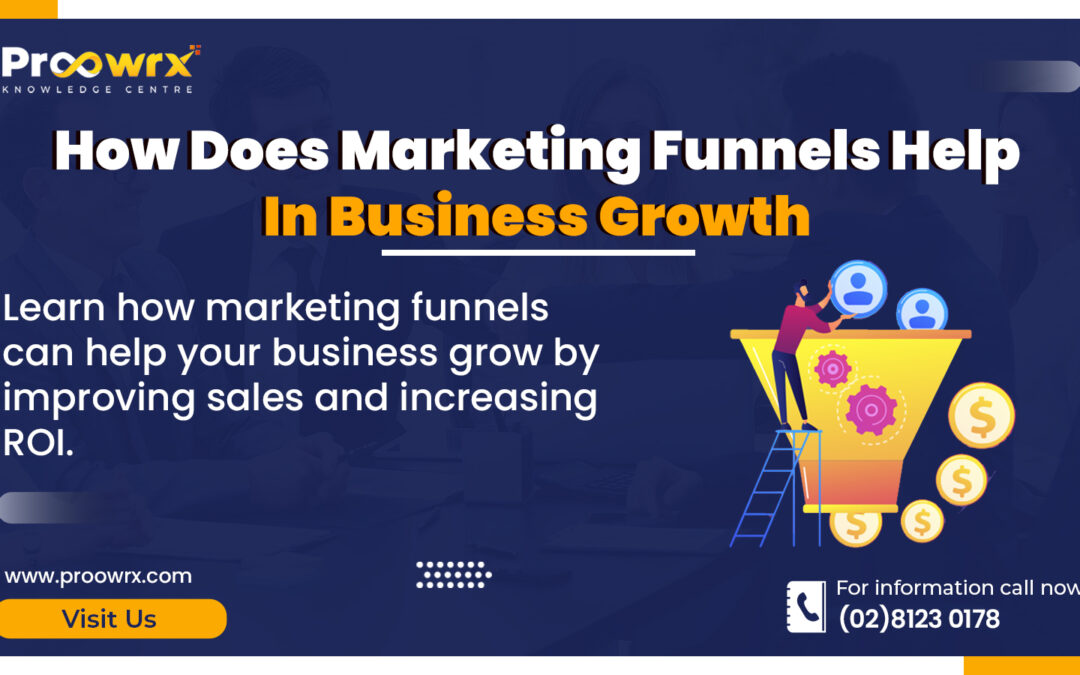Marketing plays a crucial role in connecting what companies offer with what customers want, and more importantly, in making the buying process smoother. Whether your business is a startup or well-established, its success or failure depends on its ability to sell. Without sales, there can be no innovation, growth, profit, jobs, or future.
For a business to thrive and have a promising future, it needs a healthy bottom line. One way to achieve this is by increasing sales. However, with challenges like a health crisis, tough competition, shrinking margins, and changing customer behaviours, how can businesses improve their marketing and maximize ROI? A good place to start is by closely examining the marketing funnel your team uses every day.
All these elements are crucial for the marketing and sales funnel, directly impacting marketing effectiveness. Often, marketers think their growth problems are due to low website traffic or issues with their product or service. However, the real problem might be in their marketing funnel. But how do you pinpoint the issue? How can your business use the marketing funnel to maximize results?
We can discuss different problems and find the right solutions:
1. Your marketing gets you traffic, but visitors don’t subscribe.
It’s hard to build a relationship with a first-time visitor. No matter how valuable your content is, you need an irresistible value proposition. Offer a compelling incentive to move visitors to the next stage of the customer journey.
2. Your marketing gets you subscribers, but they don’t become paying customers.
It usually takes 6-7 interactions to turn a visitor into a customer. Don’t try to close the deal too quickly. The prospect might not have enough information or confidence in your ability to solve their problem. Invest time in educating prospects. Build rapport and trust by showing that your product or service can deliver on its promise.
3. Your marketing gets you paying customers, but they don’t come back or refer to your product.
Many marketers focus only on initial customer acquisition and neglect to maintain the relationship. It takes less time, effort, and money to maintain a relationship than to acquire new customers. Stay in touch, continue creating value, and ask for feedback to improve your solution. A successful marketing funnel relies on loyal repeat customers, not just one-time buyers.
Marketers tend to customize their respective marketing funnels in simple 3 stages.
3 Stages of the Marketing Funnel
The traditional funnel model is linear, but real-world marketing doesn’t always work this way. People don’t always follow a step-by-step path from awareness to conversion. The marketing funnel, like buying behavior, is nonlinear. Understanding the customer journey from awareness to conversion is crucial.
1. Top of the Funnel: Awareness
At the top of the funnel (TOFU), prospects become aware of your brand for the first time. They might not know much about your product or service, so this stage focuses on building brand awareness.
To attract prospects and show them what you offer:
- Create educational content about concepts related to your product or service.
- Develop landing pages or infographics introducing your brand.
- Share social media posts highlighting your unique selling proposition (USP).
- Use paid ads on social media and relevant podcasts.
2. Middle of the Funnel: Consideration
In the middle of the funnel (MOFU), potential customers engage more deeply with your brand. They might subscribe to an email list, follow you on social media, or sign up for a webinar.
To engage prospects, earn their trust, and differentiate your brand:
- Write valuable articles or white papers.
- Conduct surveys to understand customer motivations.
- Share case studies and product comparisons.
- Create targeted landing pages for different customer segments.
3. Bottom of the Funnel: Conversion
At the bottom of the funnel (BOFU), prospective customers are ready to convert. You’ve captured their attention, built trust, and fostered a relationship with them.
To convert prospects and encourage them to choose your brand:
- Offer trials or demos of your product or service.
- Provide how-to guides to address any doubts.
- Share customer reviews and testimonials.
- Make feature and price comparisons easy to find.
- Send targeted email campaigns and use on-site surveys, such as emailing users who abandoned their shopping cart or placing an exit survey on your checkout page.
Conclusion
The success of any business isn’t just about technology or advertising budgets; it’s about strong relationships with customers and a commitment to keeping them at the heart of the business. The marketing funnel is not about one-time purchases. When businesses keep their promises and create solutions that meet real customer needs, and when marketers focus on improving the customer journey, customers will stay loyal and become advocates. They will see the value and appreciate the importance your business places on building better relationships with them. These strategies can help you grow your business. So why not give it a try? It might be the best move for your business. Stay tuned and visit to business toolkit section for more such tips!

